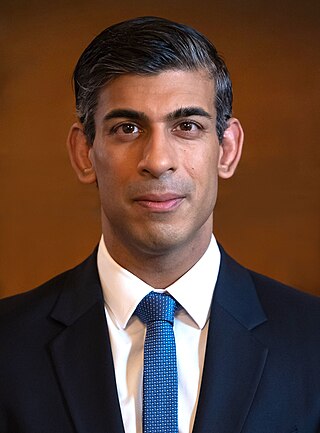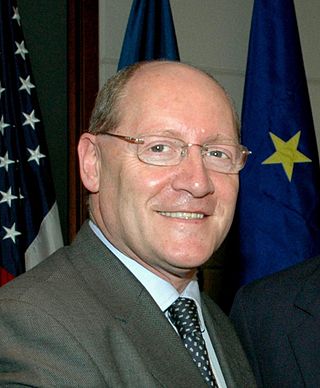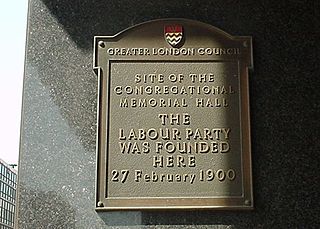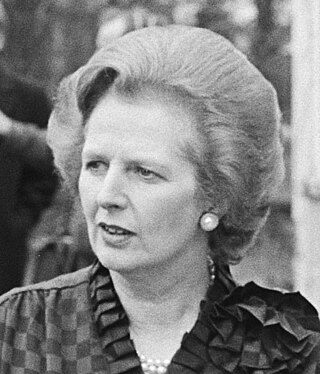
The Liberal Party was one of the two major political parties in the United Kingdom, along with the Conservative Party, in the 19th and early 20th centuries. Beginning as an alliance of Whigs, free trade–supporting Peelites, and reformist Radicals in the 1850s, by the end of the 19th century, it had formed four governments under William Gladstone. Despite being divided over the issue of Irish Home Rule, the party returned to government in 1905 and won a landslide victory in the 1906 general election. Under prime ministers Henry Campbell-Bannerman (1905–1908) and H. H. Asquith (1908–1916), the Liberal Party passed reforms that created a basic welfare state. Although Asquith was the party leader, its dominant figure was David Lloyd George.

The United Kingdom is a constitutional monarchy which, by legislation and convention, operates as a unitary parliamentary democracy. A hereditary monarch, currently King Charles III, serves as head of state while the Prime Minister of the United Kingdom, currently Sir Keir Starmer since 2024, serves as the elected head of government.

The Leader of His Majesty's Most Loyal Opposition, more commonly referred to as the Leader of the Opposition, is the person who leads the Official Opposition in the United Kingdom. The position is seen as the shadow head of government of the United Kingdom and thus the shadow prime minister of the United Kingdom.

The 2004 European Parliament election was the United Kingdom's part of the wider 2004 European Parliament election which was held between 10 and 13 June 2004 in the 25 member states of the European Union. The United Kingdom's part of this election was held on Thursday 10 June 2004. The election also coincided with the 2004 local elections and the London Assembly and mayoral elections. In total, 78 Members of the European Parliament were elected from the United Kingdom using proportional representation.

The Conservative Party is the oldest political party in the United Kingdom and arguably the world. The current party was first organised in the 1830s and the name "Conservative" was officially adopted, but the party is still often referred to as the Tory party. The Tories had been a coalition that more often than not formed the government from 1760 until the Reform Act 1832. Modernising reformers said the traditionalistic party of "Throne, Altar and Cottage" was obsolete, but in the face of an expanding electorate 1830s–1860s it held its strength among royalists, devout Anglicans and landlords and their tenants.
Peter Gerald "Gerry" Malone is a British Conservative Party politician who served as a member of Parliament (MP) from 1983 to 1987 and again from 1992 to 1997.
Francis George Bowles, Baron Bowles was a British solicitor and politician. A long-serving Member of Parliament (MP), Bowles served briefly as a Deputy Speaker of the House of Commons, but is perhaps best known for agreeing to give up his safe seat to make way for Minister of Technology Frank Cousins.
The Liberal Party was formally established in 1859 and existed until merging with the Social Democratic Party in 1988 to create the Liberal Democrats.
The 1963 Labour Party leadership election was held following the death of Hugh Gaitskell, party leader since 1955. He died on 18 January 1963 and was succeeded by deputy leader George Brown.

The Liberal Democrat Conference, also known inside the party as the Liberal Democrat Federal Conference, is a twice-per-year political conference of the British Liberal Democrats, the third-largest political party in the UK by the number of seats in the House of Commons, and the fourth largest by popular vote after the 2024 general election. The Conference is typically held over three days in Spring and four in Autumn, during the party conference season, at a variety of venues. It culminates in a speech by the party's Leader.
The Chief Whip of the Conservative Party oversees the whipping system in the party, which is responsible for ensuring that Conservative MPs or members of the House of Lords attend and vote in parliament in the desired way of the party leadership. Chief Whips, of which two are appointed in the party, a member of the House of Commons and a member of the House of Lords, also help to organise their party's contribution to parliamentary business.
The chief whip of the Labour Party oversees the whipping system in the Labour Party, and is responsible for ensuring that Labour members of Parliament (MPs) or members of the House of Lords attend and vote in Parliament of the United Kingdom in the desired way of the party leadership. The two chief whips, one in the House of Commons and one in the House of Lords, also help to organise their party's contribution to parliamentary business. The chief whip manages a team of whips, whom they may appoint from the Parliamentary Labour Party, to support the work of the whips' office.

The Liberal Democrats are a liberal political party in the United Kingdom, founded in 1988. The current leader of the party is Ed Davey. They are the third-largest party in the United Kingdom, with 72 members of Parliament (MPs) in the House of Commons. They have 79 members of the House of Lords, four members of the Scottish Parliament, one member in the Welsh Senedd, and more than 3,000 local council seats. The party holds a twice-per-year Liberal Democrat Conference, at which party policy is formulated. In contrast to its main opponents' rules, the Liberal Democrats grant all members attending the conference the right to speak in debates and vote on party policy, under a one member, one vote system. The party also allows its members to vote online for its policies and in the election of a new leader.
The National Liberal Federation (1877–1936) was the union of all English and Welsh Liberal Associations. It held an annual conference which was regarded as being representative of the opinion of the party's rank and file and was broadly the equivalent of a present-day party conference.
The Carlton Club meeting, on 19 October 1922, was a formal meeting of Members of Parliament who belonged to the Conservative Party, called to discuss whether the party should remain in government in coalition with a section of the Liberal Party under the leadership of Liberal Prime Minister David Lloyd George. The party leadership favoured continuing, but the party rebels led by Bonar Law and Stanley Baldwin argued that participation was damaging the party. The meeting voted decisively against the Coalition, which resulted in its collapse, the resignation of Austen Chamberlain as party leader, and the invitation of Law to form a Government. The Conservatives subsequently won the general election with an overall majority.
In the Parliament of Australia, the political parties appoint party whips to ensure party discipline, help manage legislative business and carry out a variety of other functions on behalf of the party leadership. Additional functions of the government party whips is to ensure that a sufficient number of government members and senators are present in the chamber to ensure passage of government legislation and measures and to prevent censure motions succeeding, and to ensure presence of a parliamentary quorum. Their roles in the chamber include tally votes during divisions, and arranging pairs which affects the ability of members and senators to leave parliament during sittings, as well as the entitlement to be absent during divisions.

The Social Democratic Party (SDP) was a centrist to centre-left political party in the United Kingdom. The party supported a mixed economy, electoral reform, European integration and a decentralised state while rejecting the possibility of trade unions being overly influential within industrial relations. The SDP officially advocated social democracy, and unofficially for social liberalism as well.

The Labour Representation Committee was a pressure group founded in 1900 as an alliance of socialist organisations and trade unions, aimed at increasing representation for labour interests in the Parliament of the United Kingdom. The Labour Party traces its origin to the LRC's foundation.

The Gang of 25 or the Group of 25 was a cohort of British Conservative Party backbench members of Parliament (MPs) that threatened to vote against prime minister Margaret Thatcher's 1981 Autumn Statement. The statement contained monetarist measures to control inflation. Similar measures introduced since 1979 had reduced inflation but caused job losses in the manufacturing sector.
The Isle of Wight by-election was a Parliamentary by-election held on 6 April 1904. The constituency returned one Member of Parliament (MP) to the House of Commons of the United Kingdom, elected by the first past the post voting system.













